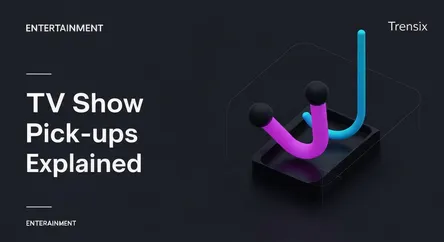Entertainment
TV Show Pick-ups Explained

Discover what a 'pick-up' is in television, how a pilot becomes a full series, and why this decision shapes what we watch.
What Is It?
In the television industry, a 'pick-up' is the crucial green light a show receives to go into production. After a network or streaming service reviews a pilot episode—a standalone test episode—they decide whether to 'pick up' the show for a full season order. This decision transforms a concept into an actual series that will be produced and aired. A pick-up typically involves an order for a specific number of episodes, often starting with a shorter run like 10-13 episodes, with the potential for more if the show is successful.
Why Is It Trending?
The term trends annually during what's known as 'pilot season' and the network 'upfronts,' when major decisions about new programming are announced. News of which pilots are picked up, and which are passed over, generates significant buzz among industry insiders and TV fans. Speculation about which big-name actors or beloved concepts will make it to series fuels online discussion. With the rise of streaming services, the pick-up model has evolved, but the announcement of a new series from a major player like Netflix or HBO remains a major media event.
How Does It Affect People?
For creators, writers, actors, and crew, a series pick-up means employment and the validation of their creative efforts. It's the culmination of months, or even years, of development work. For audiences, it dictates the future of entertainment; a pick-up means a new story and characters to follow. Conversely, when a promising pilot isn't picked up, it can be a major disappointment for both the creative team and the potential fanbase that was anticipating its debut.